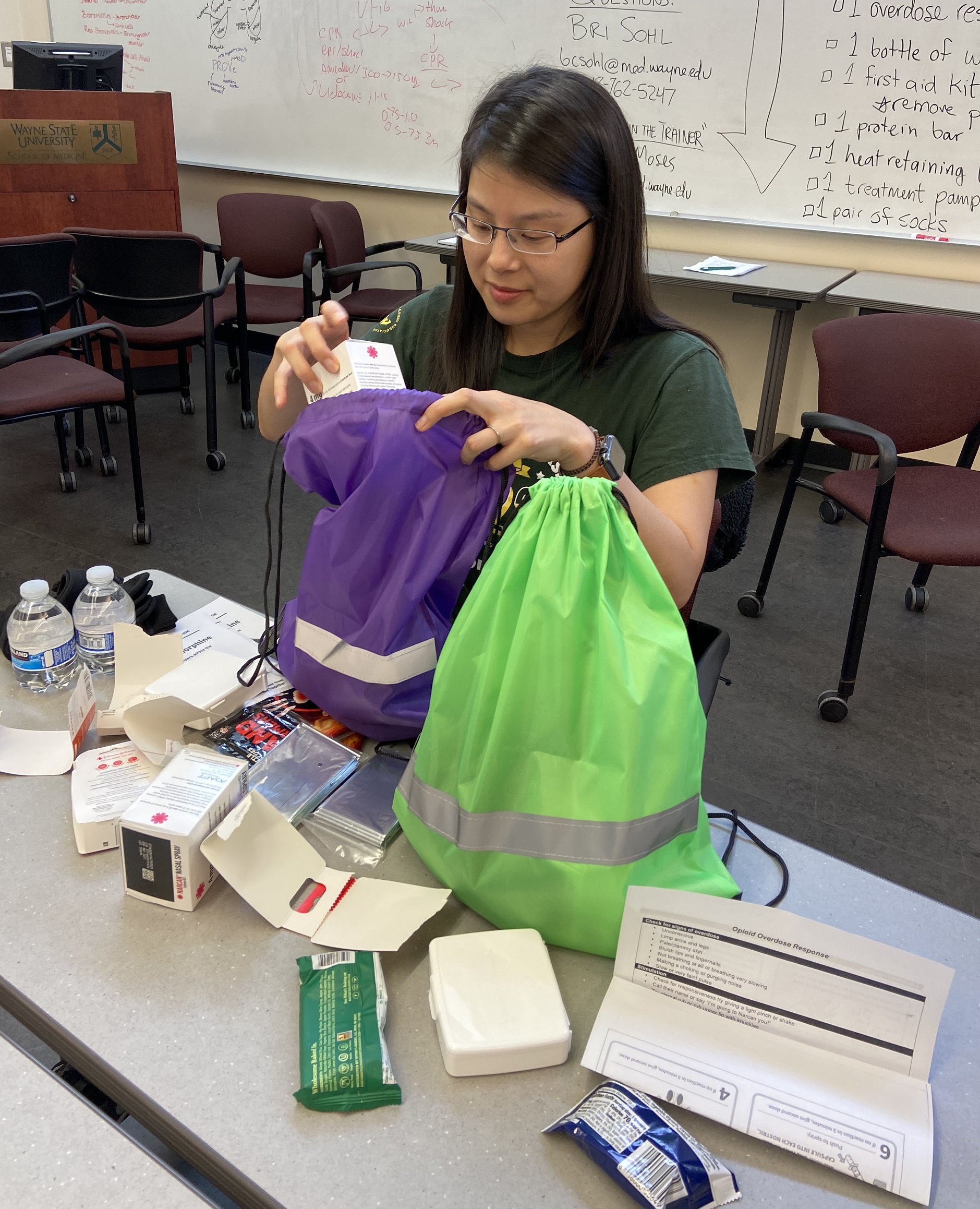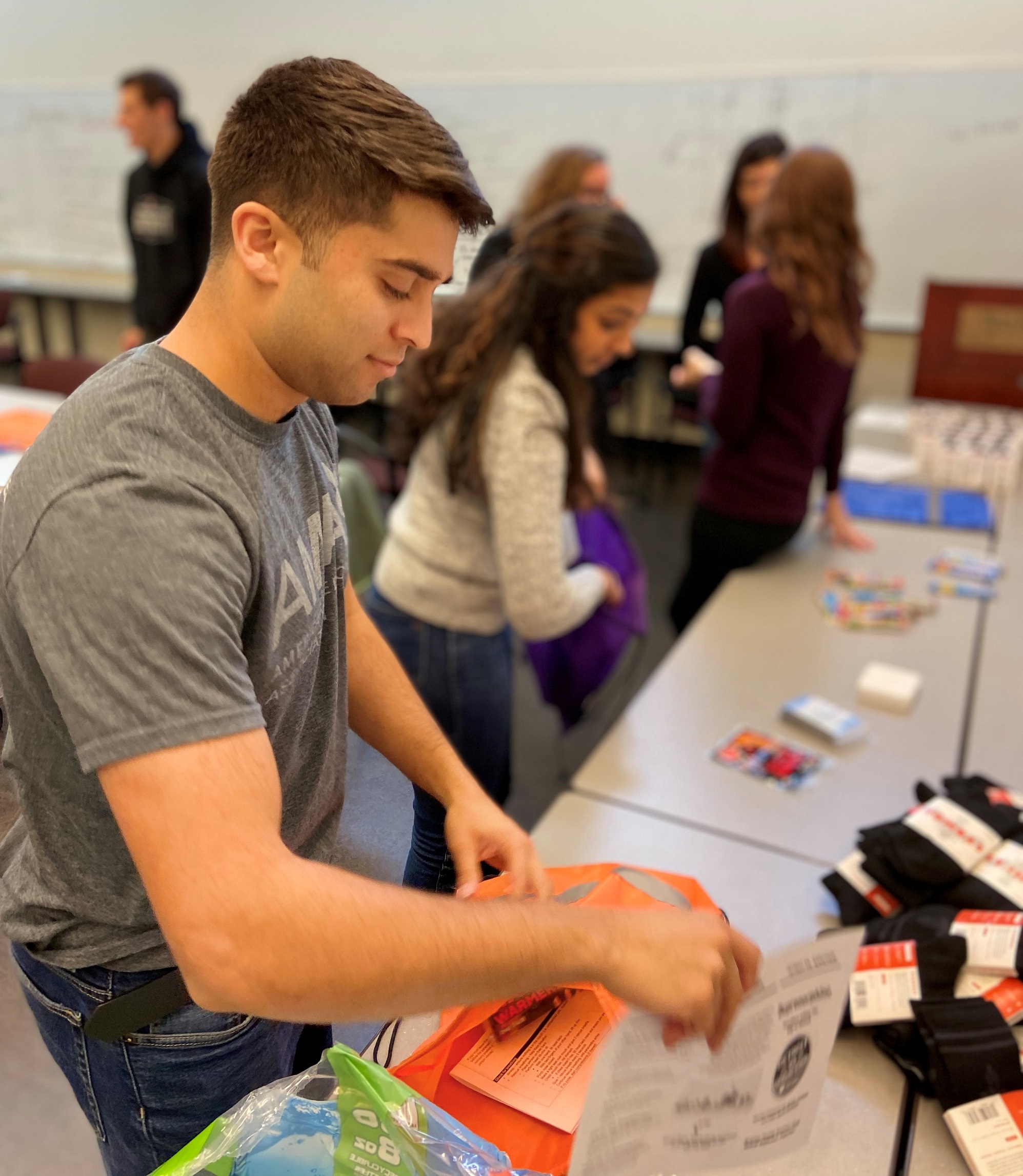Groups deliver care packages with naloxone and health items on street run
Twenty Wayne State University School of Medicine students from the executive boards of the American Medical Association Wayne student chapter, Detroit vs Addiction and Street Medicine Detroit gathered in the Mazurek Medical Education Commons Nov. 1 to pack 50 backpacks with naloxone kits and other necessities to distribute to Detroit’s homeless population.
The AMA chapter also purchased health items to be included in the packages through an AMA Medical Student Section Engagement Grant. The bags included a naloxone nasal spray kit, written material on how to recognize an opioid overdose, a brochure on where to find treatment for substance use disorder, a miniature first aid kit, a water bottle, protein bar, socks, hand warmers and heat-retaining blanket.
Two days later, students from each organization distributed the bags during the first of what they hope to be many street runs like it, driving with Street Medicine Detroit to areas in the city where people with limited access to health care and housing are known to congregate.
Naloxone blocks or reverses the effects of opioids, and is used to treat an opioid overdose in an emergency situation.
“We’ve had a lot of patients ask us about naloxone. It’s more that there is a shortage of naloxone than a shortage of knowledge,” said Street Medicine Vice President Anneliese Petersen. “It’s empowering them to help their community members.”
The event was developed by third-year medical student Brianna Sohl as part of the AMA-Medical Student Section Advocacy Week, held Oct. 28-Nov. 1 nationally to tackle pressing public health issues, including the opioid overdose crisis. Sohl developed the project with students Tabitha Moses, May Chammaa and Jedidiah Bell.
“It was great that our organizations came together to try to make positive change in our community. Detroit vs Addiction has been working toward providing education to medical students regarding addiction so that we can provide holistic and non-judgmental care for people struggling with substance use disorders,” said Katrina Cuison, the group’s education coordinator.
The naloxone kits are $75 each when bought in bulk. They were purchased by AMA and Detroit vs Addiction with the support of the School of Medicine Alumni Association Annual Fund.
“These purchases were made possible due to the significant support provided to us by Assistant Professor of Psychiatry Eva Waineo (M.D.), who has been a major advocate for providing this type of education and outreach opportunities for our students,” said Moses, an M.D.-Ph.D. student in her second year of the Translational Neuroscience Graduate Program.
Each student attended an Opioid Overdose Response “Train the Trainer” event led by Jessica Moreno, Pharm.D., who specializes in psychiatric pharmacy and substance use disorders. Students engaged with people who are homeless throughout Detroit regarding naloxone, how and when to use naloxone, and the importance of its availability to everyone in the community. “Of those people we talk to, most of them had heard of naloxone and many described previously using naloxone on others in their community and were grateful to have naloxone kits provided to them,” Sohl said.